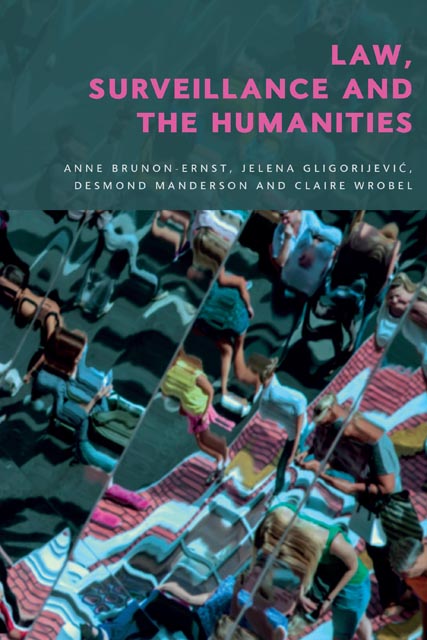6 - Panopticon as a Surveillance Model
Published online by Cambridge University Press: 18 November 2023
Summary
I. Introduction: Timely Reassessment?
One of the aims of the present volume is to examine how the COVID-19 health crisis has concentrated and intensified the stakes and ambiguities of surveillance. In this investigation, both Sabot and Gligorijević feel the need to use the panoptic metaphor to further their arguments. This scholarly resurgence is reflected in more general use in newspapers and media. The most telling of these is the newspaper article entitled ‘Panopticon in Your Pocket’ on the COVID tracing app. With the exception of March 2004 and January 2017, the Internet search request ‘Panopticon’ has never trended so high. In the stock of shared metaphors to characterise surveillance, the adjective ‘Orwellian’ is a strong contestant. However, Panopticon is a clear winner. But to what extent does this use reflect an appreciation or a misunderstanding of Foucault's work on the transformation of governmental power over the last two hundred years?
Many academics have tried to make sense of the unprecedented changes brought on by the COVID-19 pandemic. Judith Butler is one of them, writing:
I see that there are writers and academics who are taking both utopian and dystopian positions. The utopians tend to celebrate the global time-out as an opportunity to remake the world and to realize the socialist ideals embodied in the communities of care that have recently emerged. I can understand that. The dystopians tend to project into the future the intensification of state control and surveillance, the loss of civil liberties and the unshackling of market forces, including the crude kinds of market rationality that intensify social and economic inequalities. I can understand that, too.
The Panopticon as metaphor puts a dystopian spin on any investigation of the pandemic. This stand needs to be contrasted with Bentham's own reference to his panoptic project as utopian.5 Using the term ‘panoptic’ as a characterisation of surveillance tips the perspective on the side of the dystopian and aims to bring to view all the unsatisfactory elements that members of society might not have seen or understood in their practices. The aim of this chapter is to show how the Panopticon alternates between dystopian (state and corporate surveillance) and utopian (transparency, publicity, accountability) models of surveillance. Indeed, as Tadié also explains in this volume, surveillance has both a utopian and dystopian legacy.
- Type
- Chapter
- Information
- Law, Surveillance and the Humanities , pp. 111 - 127Publisher: Edinburgh University PressPrint publication year: 2023



